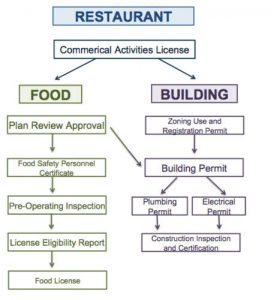Vernon Hill doesn’t like dumb questions, and I’ve apparently just asked one.
“What are you, nuts? What are you, crazy?” he spits out over the phone. I’ve called the bombastic and controversial Hill because, as the disruptor behind Commerce Bank and, now, London’s groundbreaking Metro Bank, he has long been a guru when it comes to providing transformative customer service, as he documents in his 2012 book, Fans! Not Customers: How to Create Growth Companies in a No Growth World.
South Jersey’s Hill sold Commerce for some $8.5 billion in 2007 and is now upending the staid banking industry across the pond with Britain’s first new bank since 1840. I told him that we’ve been trying to hold city government up to customer service inspection, going so far as to send mystery shoppers out to engage with local public agencies and report back on the good and the bad.
That’s what led to my apparently naive question: “Seeing as how you’re one of the globe’s preeminent reinventors of the notion of customer service in the private sector,” I asked him, “has anyone from Philadelphia government ever called to pick your brain about how to make the city more responsive to its customers, which, of course, includes its businesses?”
One businessman recently said to me: “I feel all alone.” Another moved a 120-employee firm here because her employees wanted to be in a vibrant downtown; when she called the city to share the good news, all she got was a shoulder-shrugging “welcome” response—instead of information about the various tax breaks a firm her size could qualify for.
“You really must be on drugs,” he says. “They’ve never called and they never will call. What you don’t understand is, they don’t want better customer service or to make the climate more business-friendly in the city. All their votes are locked in.”
To hear Hill tell it, that kind of status quo thinking, born of a monopolistic mindset, is reminiscent of the state of banking before Commerce Bank burst on the scene in the ’70s and grew into a $40 billion business with 460 branches and 14,000 employees. To recap, Hill, who owned Burger King franchises, brought retail principles to the cloistered world of banking. He chafed at the conventional wisdom of the 80/20 rule, the notion that 80 percent of revenue is generated by catering to the top 20 percent of customers. Hill realized this resulted in saddling non-revenue generating customers—regular depositors like you and me—with inattentive service and annoying fees.
For example, at Burger King, the profit was made on soda and fries; hamburgers alone broke even. But the 80/20 rule would have had him mistreat anyone who ordered just a burger. “The truth is, bankers aren’t very smart,” Hill once told me. So along came Commerce, with its 24/7 hours, its free dog treats, (“If that bank loves my dog, they’ll love me,” he says), and his ban on “Stupid Rules.” At Commerce, as at Metro in the UK, Hill rewards employees who bring stupid rules to his attention and mandates that it takes one bank employee to say yes to a customer, but multiple representatives to say no.
The results have been staggering. In the UK, Metro Bank has opened 40 stores (you’ll never catch Hill calling them “branches”), accumulating $10 billion in assets in five years. Last month, Metro went public on the London Stock Exchange, valued at over $2 billion. (Hill is also an investor in local Republic Bank, which is being run by many Commerce alums). All, to hear him tell it, because he puts the customer first. Hill sneers when talking about the “bean counters” in his company who ask for the “Return On Investment” numbers for spending millions on state-of-the-art customer service call centers instead of outsourcing those phone banks to, say, Indonesia. “There’s never a mathematical argument for improving the customer experience,” Hill once conceded to me, before noting that it’s smart business to do it anyway.
Jim Kenney should prove Vernon Hill wrong and give him a call. “I need your help,” the Mayor should say. “Can you help me make government more responsive to the needs of business?”
Can you imagine if city government were to operate in this way, thinking first about customer service, consistently eschewing the way it’s always been done?
Which gets us to Philadelphia, where countless small to mid-size business leaders have long complained that the city is more of a hindrance than a help in their efforts to get a venture off the ground. One recently said to me: “I feel all alone.” Another moved a 120-employee firm here because her employees wanted to be in a vibrant downtown; when she called the city to share the good news, all she got was a shoulder-shrugging “welcome” response—instead of information about the various tax breaks a firm her size could qualify for.
In Boston, both before and especially after the city lured GE from Connecticut, the narrative has been about a city striving to make it easier to do business within its limits. That’s a contrast to Philly. For example, Ali Perelman, executive director of PAC Philadelphia 3.0, recently shared this head-scratching 11-step diagram anyone wanting to open a restaurant here has to wade through:

To its credit, the Kenney administration has heard the complaints and is talking about streamlining this cumbersome process; there has been talk about a “Small Business Bill of Rights.”
But Hill says they’d have a long way to go to catch up to the business-friendliness of other cities. When Hill’s Commerce Bank invaded New York in the early aughts, for example, he found out you can get a building permit by hiring a Registered Architect or Professional Engineer, who can self-certify that the plans are up to code. The Department of Buildings, in turn, holds the architect or engineer accountable.
“On most jobs in my experience in New York, the architect fills out a form and gets an approval permit handed to him across a counter,” Hill says. “And in London, it’s even easier. If you’re zoned right, you don’t need a building permit or Certificate of Occupancy. The architect is on the hook. Here, you have to go through all of L&I’s hoops. You know what a nightmare that is?”
“In New York, the architect fills out a form and gets an approval permit handed to him across a counter,” Hill says. “And in London, it’s even easier. If you’re zoned right, you don’t need a building permit. The architect is on the hook. Here, you have to go through all of L&I’s hoops. You know what a nightmare that is?”
In these other cities, government has left the business of business to businesses. That’s about more than improving the tax climate; that’s about reimagining the relationship between government and business. As mentioned here before, a World Bank report entitled “Competitive Cities for Jobs and Growth: What, Who and How” studied 750 cities across the globe, many of which have higher economic growth rates than their host countries. Among other things, it found that in competitive cities, “ business leaders were consulted about their needs and the constraints they encountered in their operations.”
In other words: They thought about the customer first.
That’s why Jim Kenney should prove Vernon Hill wrong and give him a call. (I can front him the number). “I need your help,” the Mayor should say. “Can you help me make government more responsive to the needs of business?”
Hill would grouse about it, and no doubt never take another one of my calls, but I bet he’d meet with Kenney’s team and maybe even pull together a group of likeminded Masters of the Universe to serve as a kind of kitchen cabinet for Kenney. Then again, maybe Hill is right and that call will never come. Maybe I have done too many drugs.
Photo Header: Flickr/Ken Hawkins







